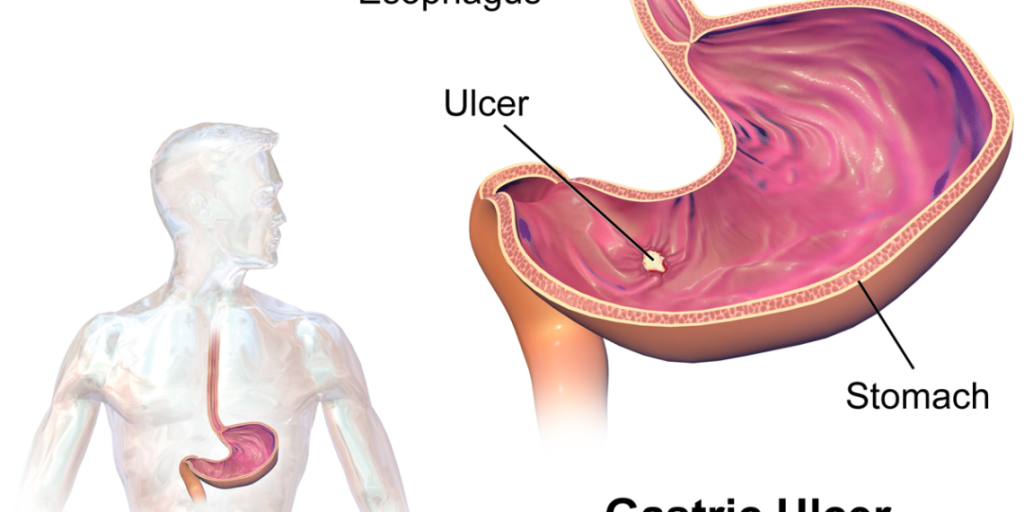
Source: Mariam Ileyemi

An image to illustrate gastric ulcer (PHOTO CREDIT: Wikipedia)
Many Nigerians commonly believe that stress, spicy foods, or skipping meals are the main causes of stomach ulcers. However, medical experts say the real culprit in most cases is a bacterium known as Helicobacter pylori (H. pylori). This little-known organism infects the stomach lining and is responsible for a majority of peptic ulcer cases worldwide, including in Nigeria.
H. pylori is a spiral-shaped bacterium that can live in the digestive tract for years without showing symptoms. Over time, it can cause inflammation, damage to the stomach lining, and painful ulcers. In more serious cases, it has even been linked to stomach cancer and a rare type of lymphoma.
Dr. Ganiyat Oyeleke, a Consultant Gastroenterologist and Hepatologist at the Lagos University Teaching Hospital, explains that the belief linking ulcers to stress or fasting is outdated and misleading.
H. pylori has special features that allow it to survive in the harsh acidic environment of the stomach. It burrows beneath the stomach’s protective mucus layer, where it causes inflammation and weakens the cells that normally regulate acid production. As acid levels rise, the stomach lining becomes more vulnerable to injury, leading to ulcers.
H. pylori infection is very common, especially in developing countries. It spreads through contaminated food, water, or saliva.
“The infection is typically acquired by ingesting food or water contaminated with stool or through contact with the saliva of an infected person,” Dr. Oyeleke noted.
This makes H. pylori a disease closely linked to poor hygiene, inadequate sanitation, and lack of access to clean water.
Prevention largely comes down to good hygiene and environmental health. Here are some key steps to reduce your risk:
The World Health Organization (WHO) has even classified H. pylori as a carcinogen due to its links to gastric cancer.
Many people with H. pylori have no symptoms. When symptoms do appear, they may include:
In Nigeria, diagnosis can be done through various methods:
Yes, H. pylori infections are treatable with the right combination of antibiotics and acid-suppressing medications. However, treatment must be completed exactly as prescribed to fully eradicate the bacteria and prevent recurrence.
If left untreated, H. pylori can lead to:
Ulcers are a common but serious health issue in Nigeria. Dispelling myths and educating the public about H. pylori can lead to better diagnosis, treatment, and prevention. Dr. Oyeleke encourages all Nigerians to practice good hygiene, seek medical care early, and stop blaming ulcers on skipped meals or stress alone.